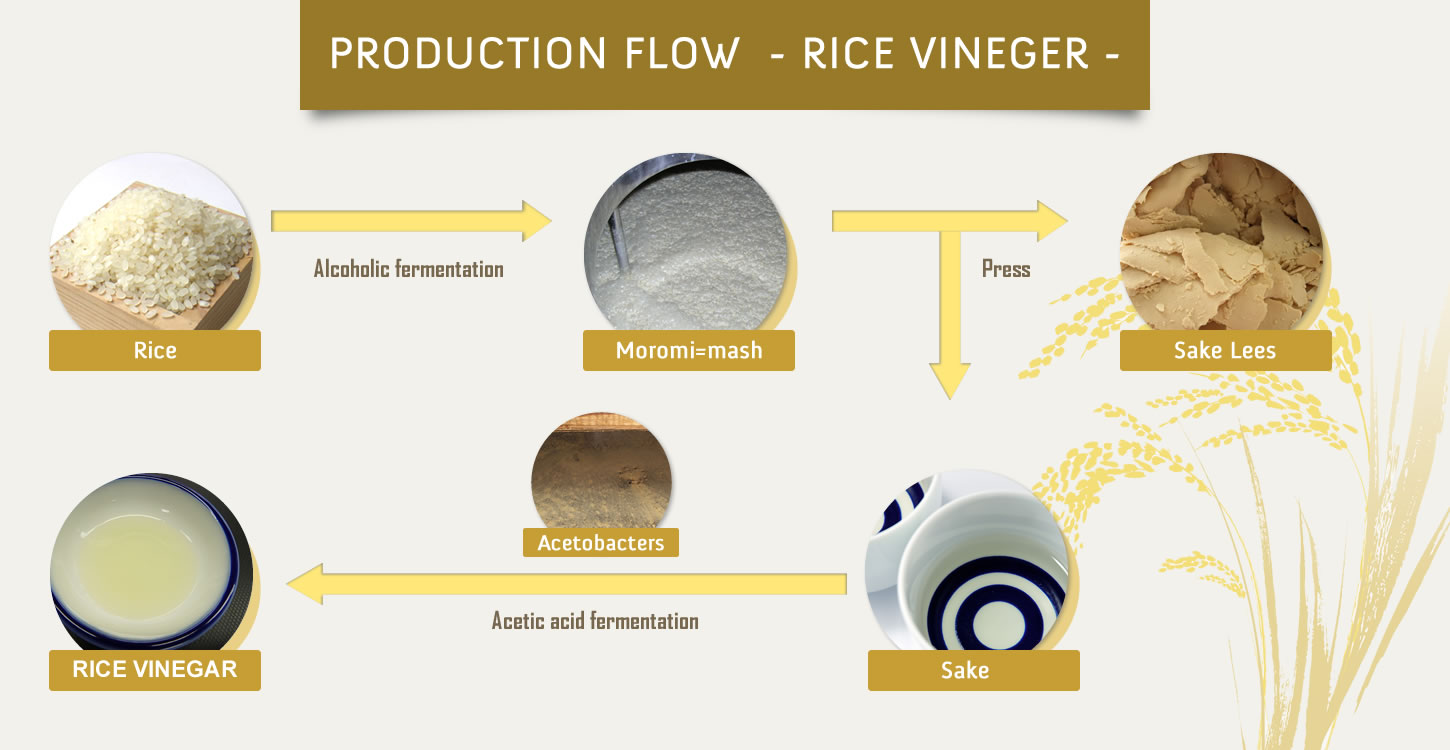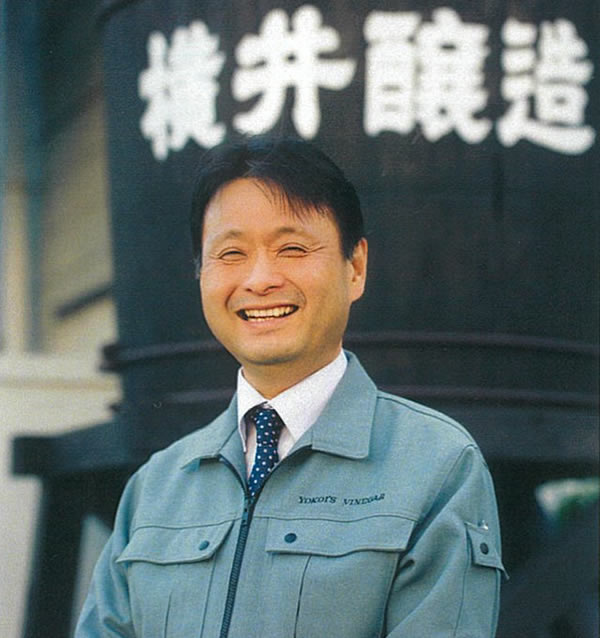
Japan has a long, extensive vinegar culture. It is even said that Samurai would drink it to relieve them from fatigue and give them more energy. Now-a-days it is an important ingredient in everyday dishes, as well as Japan’s most popular cuisine: sushi. It is often paired with raw seafood and meat, due to its neutralizing and antibacterial features. Health benefits, include lowering blood pressure, improving digestion and relieving sore muscles.
YOKOI was established in 1937 and is the only company in Tokyo that brews vinegar the traditional way, as well as the only brewery making "Akazu Red Vinegar". This type of vinegar is preferred by sushi chefs of the Edo-mae style sushi artistry. YOKOI makes this with premium "sake lee" and by a lenghty fermentation process to mature the umami components. They note that there is no trained sushi chef that does not know their brand.
Red "Akazu" Vinegar:
Rice Vinegar:
Strictly selected sake lees are aged for an extended time, so that the sugar and amino acid in the lees cause the color and aroma of the vinegar. The final product is smooth and delicious, and above all, the aroma is unlike any other vinegars. When sushi rice is prepared with the YOKOI red vinegar, it glows in a light brown hue, and gives you an idea of what sushi must have tasted like in the Edo period (1603-1868)!
YOKOI's Rice Vinegar is made by first making Japanese sake with local rice. Then, acetobacter is mixed in to make vinegar. The smooth tanginess from the savory umami flavor of rice matches sushi perfectly. The vinegar is blended with the Red Vinegar in a superb balance, so its “aroma” and “savory umami flavor” come through. This style is popular with professional chefs.
Rice Vinegar made from Rice. Red "Akazu" Vinegar is made from Sake Lees !



Yokoi's Philosophy:
"If it is to make delicious vinegar,
spare no time and effort!"
Mr. Taro Yokoi
Yokoi's brewed vinegar has been favored by long-established restaurants and many sushi restaurants for many years. They make use of a unique "solid fermentation" method and use carefully selected raw materials ingredients. Part of their line-up is organic JAS and NON-GMO certified, or even Halal certified, on request of their international fans. Their mission is to let as many people as possible experience the true taste of "EDO" vinegar.
YOKOI Brewery Production Process
YOKOI learned about the "solid fermentation method" about 40 years ago and was implemented by the second generation of the business.
Ordinary vinegar is fermented in a liquid state by adding water to raw ingredients, such as rice, in a type of urn.
The "solid fermentation method" moistens the raw ingredients while solid, and ferments it while maintaining its semi-dry state. This makes it possible to expose the raw ingredients to air, even during fermentation. Air, or oxygen, is essential for fermentation.
By absorbing more of that oxygen, fermentation becomes more active and richer vinegar is produced. "True black vinegar" is a very mellow black vinegar, characterized by its natural sweetness and deep richness, allowing you to taste a hint of brown sugar. It is perfect for cooking, or diluting it as a healthy drink.

Red vinegar is a thick vinegar made from sake lees that has been aged for a long time. Red vinegar was a popular, delicious vinegar in the Edo period, but due to its lenghty production process, it became a luxury product in modern days. YOKOI brews a number of vinegars, including black vinegar and apple cider vinegar; However, their speciality still lies with their classic "Edo style Red Vinegar".
To craft the red vinegar, they first carefully select sake lees and mature them for a long time. The sugar content and amino acids contained in sake lees change the white sake lees to brown and even dark brown, and the aroma changes to a very specific aroma reminding of wine. Sushi rice made with this red vinegar is colored light brown, and the sushi of the Edo period has a taste reminiscent of "kakuya".






